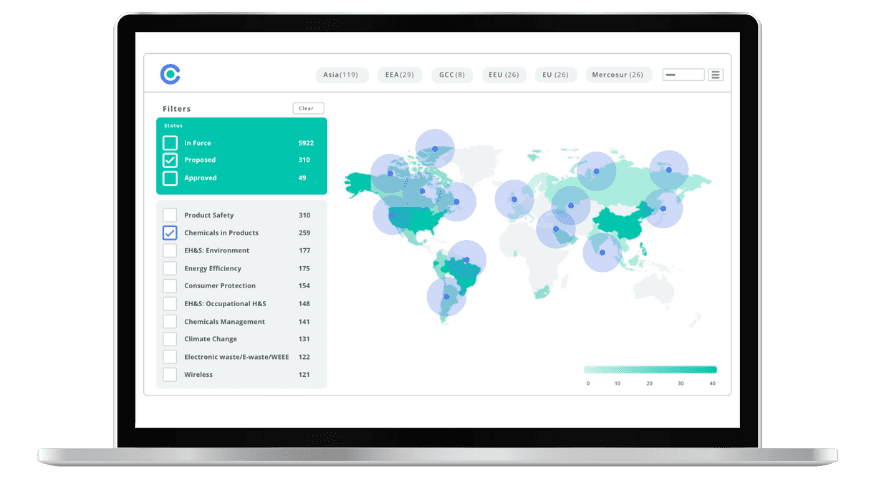
Switzerland Proposes Significant Expansion of Sustainability Reporting Obligations

This blog was originally posted on 1st July, 2024. Further regulatory developments may have occurred after publication. To keep up-to-date with the latest compliance news, sign up to our newsletter.
AUTHORED BY HANNAH JANKNECHT, REGULATORY COMPLIANCE SPECIALIST, COMPLIANCE & RISKS
Introduction
The Swiss Federal Council has proposed a major amendment to non-financial reporting in Switzerland. The amendments were proposed on 26 June 2024, and once in force, they will extend the Swiss reporting obligations to an estimated 3,500 companies compared to the 300 companies that are currently in scope.
In this blog, we look at the current disclosure rules in Switzerland and what’s new under the proposed amendments.
Current Legislation
Under the current disclosure rules in Switzerland, large corporations are already required to report on their environmental, social, employee, human rights and anti-corruption risks as well as the measures taken in these areas.
This concerns companies with at least 500 employees, CHF 20m balance sheet total and CHF 40m turnover. The legislation is harmonized with international obligations, including the European Non-Financial Reporting Directive. Furthermore, since the start of 2024, large companies are obliged to report on a ‘comply or explain’ basis in accordance with the TCFD framework (Swiss Climate Disclosures Ordinance 2022).
What’s New?
The draft law proposed by the Swiss Federal Council on 26 June 2024 aims to further harmonize Swiss reporting obligations with the new European Corporate Sustainability Reporting Directive (CSRD). The Council justifies this decision by stating that many Swiss companies already fall into the scope of the CSRD due to their strong international integration, and that further harmonization would therefore be advantageous.
Companies that reach two of the following three thresholds would now be in scope of the reporting obligations:
- 250 employees;
- CHF 25m in total assets; and
- CHF 50m in turnover.
At the same time, the following companies are exempt from the obligation to publish a sustainability report:
- Companies that are controlled by another company that is subject to the obligation to prepare a sustainability report or that prepares a sustainability report in accordance with foreign law
- Companies that do not exceed at least two of the following thresholds:
- a balance sheet total of CHF 450,000;
- sales revenue of CHF 900,000;
- 10 full-time employees on average per annum;
- an annual average of CHF 900,000.
The report must cover a broad range of sustainability aspects, including:
- environmental factors, in particular the company’ status with regard to achieving the net-zero greenhouse gas emissions target by 2050 at the latest to limit global warming to 1.5°C compared to pre-industrial levels;
- social aspects, including employee concerns;
- human rights aspects;
- governance aspects, including organizational measures to combat corruption.
Similar to the CSRD, the Swiss Draft requires companies to conduct a double materiality assessment and report on those aspects that are necessary to understand the impact of the company’s activities on sustainability issues as well as the impact of sustainability issues on the company’s business performance, results and position. The information provided in the report should cover the company’s own activities as well as its supply chain and business partners.
In addition, the draft proposes to introduce the obligation to obtain independent, third-party verification for the reported sustainability information. The report must be prepared in English or one of the official languages of Switzerland. It shall be drafted in a standardized electronic format that complies with an internationally used standard.
Though many of the proposed reporting features are quite similar to those of the CSRD, there is a major difference with regard to the standards that form the basis of the reporting obligations. Companies in Switzerland will be given the choice of either basing their sustainability report on the EU standards or choosing another equivalent standard. The Federal Council will define equivalent standards in a corresponding ordinance.
Additional Review of Due Diligence Obligations
While working on the future of ESG reporting in Switzerland, the Swiss Federal Council also announced that it will conduct a thorough analysis of the impact that the new CSDDD (EU Corporate Sustainability Due Diligence Directive) will have on Swiss companies.
The CSDDD was approved by the Council in May 2024 and its obligations will be phased in between 2027 and 2029, introducing extensive supply chain due diligence requirements for companies with more than 1000 employees. The analysis will be carried out by autumn 2024, when next steps will be announced.
Stay Ahead Of Regulatory Changes in Swiss Sustainability Reporting Obligations
Want to stay on top of regulatory developments in Swiss Sustainability Reporting Obligations?
Accelerate your ability to achieve, maintain & expand market access for all products in global markets with C2P – Your key to unlocking market access, trusted by more than 300 of the world’s leading brands.
C2P is an enterprise SaaS platform providing everything you need in one place to achieve your business objectives by proving compliance in over 195 countries.
C2P is purpose-built to be tailored to your specific needs with comprehensive capabilities that enable enterprise-wide management of regulations, standards, requirements and evidence.
Add-on packages help accelerate market access through use-case-specific solutions, global regulatory content, a global team of subject matter experts and professional services.
- Accelerate time-to-market for products
- Reduce non-compliance risks that impact your ability to meet business goals and cause reputational damage
- Enable business continuity by digitizing your compliance process and building corporate memory
- Improve efficiency and enable your team to focus on business critical initiatives rather than manual tasks
- Save time with access to Compliance & Risks’ extensive Knowledge Partner network

ESG 2023: A Year in Review
Our whitepaper summarizes the ESG regulatory landscape in 2023, reviewing the key regulations proposed, published and/or entered into force.


